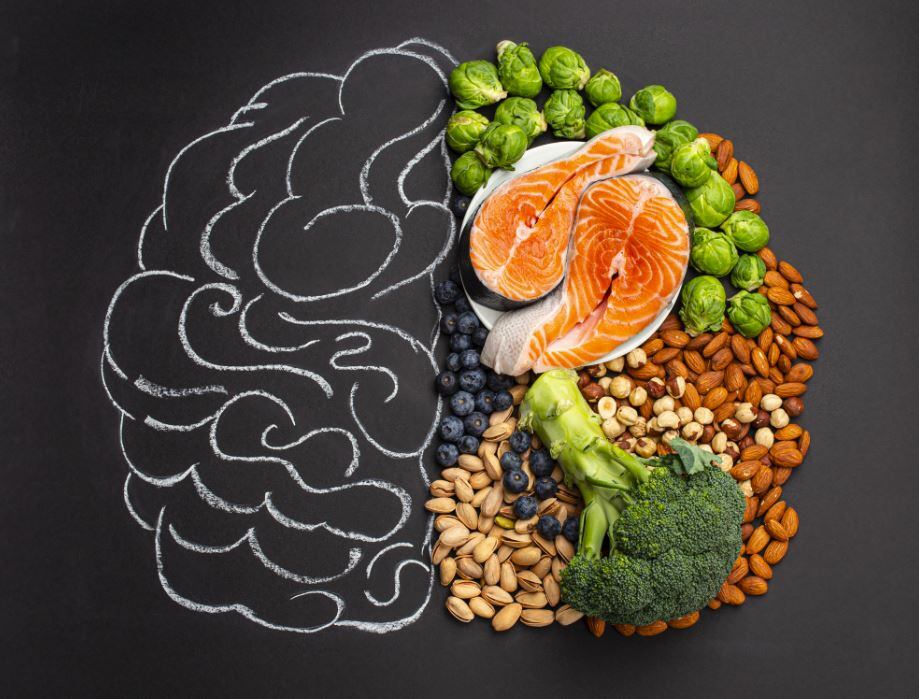The ‘do it at home’ pin-prick test gives a clear indication of omega-3 levels, alongside a cognitive function test, that can help identify future risk and educate on how to "dementia-proof diet and lifestyle".
“We are inviting people to join our ‘citizen science’ study to track the impact of diet and Omega-3 on cognitive function over time.” says the charity’s CEO, Patrick Holford, a brain health expert. “I’m convinced we are digging our own graves with a knife and fork and our brains and mental health are suffering as a result. Alzheimer’s, which is preventable, is also a direct consequence of this.”
He adds: “Today’s diet contains less than a tenth of the omega-3 fats that our ancestors ate and this is having dire consequences on mental health. Increased rates of depression, autism, ADHD and dementia are all strongly linked to lack of seafood. Increased intake from eating fish or supplementing omega-3 fish oils reduces dementia risk by 20 per cent.
“While a plant-based diet has many benefits, those who eat no fish, are especially vulnerable, and must supplement omega-3 DHA, derived from algae. The only way to be sure you have enough is to get a blood test to specifically test your levels."
The organisation provides free online validated Cognitive Function Tests and the Dementia Risk Index questionnaires, in order to identify those not eating enough "brain fats", then advising them what to do.
The charity draws attention to recent research which analysed the IQ scores of Norwegian men born between 1962 and 1991 and found that scores steadily decreased among those born after 1975.
It also notes that one in five of the world’s children and adolescents have a mental health condition.
The charity communicates that this coincides with a change in western diet away from fat, towards carbohydrate and sugar, based on the mistaken belief that it was fat, not sugar, that was causing heart disease.
Further, research recently established that if a pregnant woman lacks omega-3 DHA this carries a risk of developmental brain problems and mental deficits in their offspring, as well as a risk of learning and cognitive disabilities.
One of the researchers behind that project, Professor Michael Crawford, visiting professor at Imperial College’s Chelsea & Westminster campus and science advisor to the charity, spoke in a recent online seminar hosted by the charity, discussing the importance of maternal diet on cognitive health, mental health and autistic spectrum disorder in children.
He asserted: “There is a missing story around the importance of good nutrition with regards to the brain. The focus is on body growth and, quite frankly, that’s not the story of Homo sapiens.”
The researcher, who authored the book ‘The Shrinking Brain’, pointed out that the biological developmental priority of humans is the brain, not the body, meaning that nutrition for the brain is of the utmost importance in infants in utero and beyond.
He explained the biosynthetic process to produce polyunsaturated fatty acids AA, EPA and DHA is ‘tricky and slow’ so it is helpful to consume nutrition providing preformed EPA and DHA.
“DHA really is a very important molecule enabling important signalling processes within the synapses in the brain,” he asserted. “It’s extraordinary how much the lipid significance of neuro development, which is going to determine the neurological competences of the individual, is being ignored...”
"Iodine and DHA are important components in the marine food web. The marine food web tends to get forgotten these days but it has profound impacts on the brain in many different ways."
He emphasised that evidence shows that it's important for an expectant mother to reach the appropriate omega-3 index prior to conception.
“It is absolutely critical that people start thinking about the importance of nutritional status pre-conception…
“Without getting this right before conception, Homo sapiens are really on their way down. Not just IQ is shrinking but there is evidence that brain size is shrinking.
“What’s at stake is the future of our children, and their children.”
The experts noted that there can be anxiety during pregnancy around the consumption of fish, due to recommendations around avoiding heavy metal consumption, so there may be a need for changes to maternal guidance.
Within the seminar, experts additionally discussed potential roles of the microbiome as well as vitamins A, C, D, and B12, and folic acid in cognitive health.


